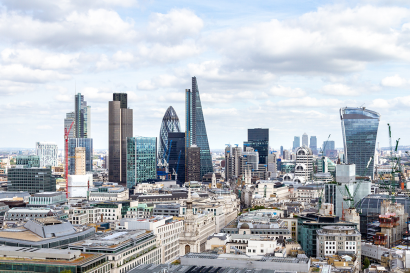AG INSIGHT | 21/07/2023
Mansion House speech reveals disconnect with green agenda

Last week, Chancellor Jeremy Hunt delivered his first Mansion House speech to leading figures from the City’s financial services sector.
Hunt unveiled a package of reforms to the UK pensions and capital markets in a bid to drive growth and competitiveness in the sector. Whilst broadly pragmatic and much needed, the ‘Mansion House Reforms’ – as they are creatively known – failed to connect the government’s vision for financial services with its broader agenda on climate and nature.
In fact, the speech was bereft of any reference to ‘climate’, ‘nature’, ‘green’ or ‘net zero’. The irony is not lost following the world’s three hottest days on record just a week prior.
Hunt was right to focus on pension and capital market reforms
The Tony Blair Institute for Global Change (TBI) has found that returns from UK pension funds have been among the poorest in the industrialised world. Clearly, the UK pensions market isn’t providing the best outcomes for savers.
The TBI argues that accounting and regulatory changes in the early 2000s have made it less attractive for UK pension funds to hold shares in listed UK companies. As a result, pension funds’ holdings in UK equities have plummeted over the following two decades from over 50% to 4%, whilst holdings in low-risk, low-return bonds quadrupled from 15% to 60%. This trend has seen anaemic returns for savers and constrained business investment.
The Mansion House’s flagship announcement, the Mansion House Compact, aims to reverse this trend with a voluntary agreement by nine of the UK’s largest Defined Contribution pension providers to commit at least 5% of default funds to unlisted companies by 2030. Together with other proposed changes, such as consolidating Local Government Pension Schemes into larger pools, the government claims – somewhat optimistically – that these reforms could increase a typical earner’s pension pot by 12% (£16,000) over the course of a career, whilst funnelling an additional £75 billion into fast-growing start-ups and businesses.
Alongside pension reform, the Mansion House speech also set out measures to improve the attractiveness of the London Stock Exchange (LSE). This includes: publishing draft secondary legislation to simplify prospectuses and make them easier to produce, access, and understand; creating a new platform to provide a one-stop-shop for firms looking for research experts; and establishing the world’s first ‘Intermittent Trading Venue’ by the end of 2024 to allow private companies to access public capital markets without listing.
These reforms come amidst a wave of high-profile companies deciding to float their shares in New York over London, including microchip maker Arm, building materials company CRH, and plumbing equipment supplier Ferguson. Whilst these changes will help improve the lustre of the LSE, there are broader economic reasons why companies are deciding to relocate. In the US’ case, clear policy signals and a supportive regulatory environment have enticed companies.
A missed opportunity to align the UK’s financial centre with net zero
At COP26, then-Chancellor Rishi Sunak set out the UK’s ambition to be the “world’s first net-zero aligned financial centre”. This ambition not only acknowledges the important role the financial sector plays in facilitating a market-led transition to net zero, but the green finance growth opportunity the UK is well placed to capitalise on.
It was a missed opportunity, then, that the current Chancellor failed to join the dots between pension and capital market reforms and the government’s green finance leadership ambitions.
Whilst undoubtedly a portion of the potential £75 billion that could be unlocked due to these reforms will flow to green industries (one of the five high-growth sectors Hunt identified in January), the package of reforms does not address the contribution of the UK pension market or the LSE to climate and nature breakdown.
Fossil fuel investments, for example, account for over 4% of the UK’s six largest pension funds and 3% of Local Government Pension Schemes. The embedded emissions within reserves owned by companies listed on the LSE, meanwhile, are 10 times greater than the UK’s 2023-2037 carbon budget.
If the UK really wants to achieve its mission to become world’s first net-zero aligned financial centre, then considerations for climate and nature must be embedded – not sidelined – within financial services policy and regulation, including at the big set-piece moments such as the Mansion House speech and the Autumn Statement later in the year.


